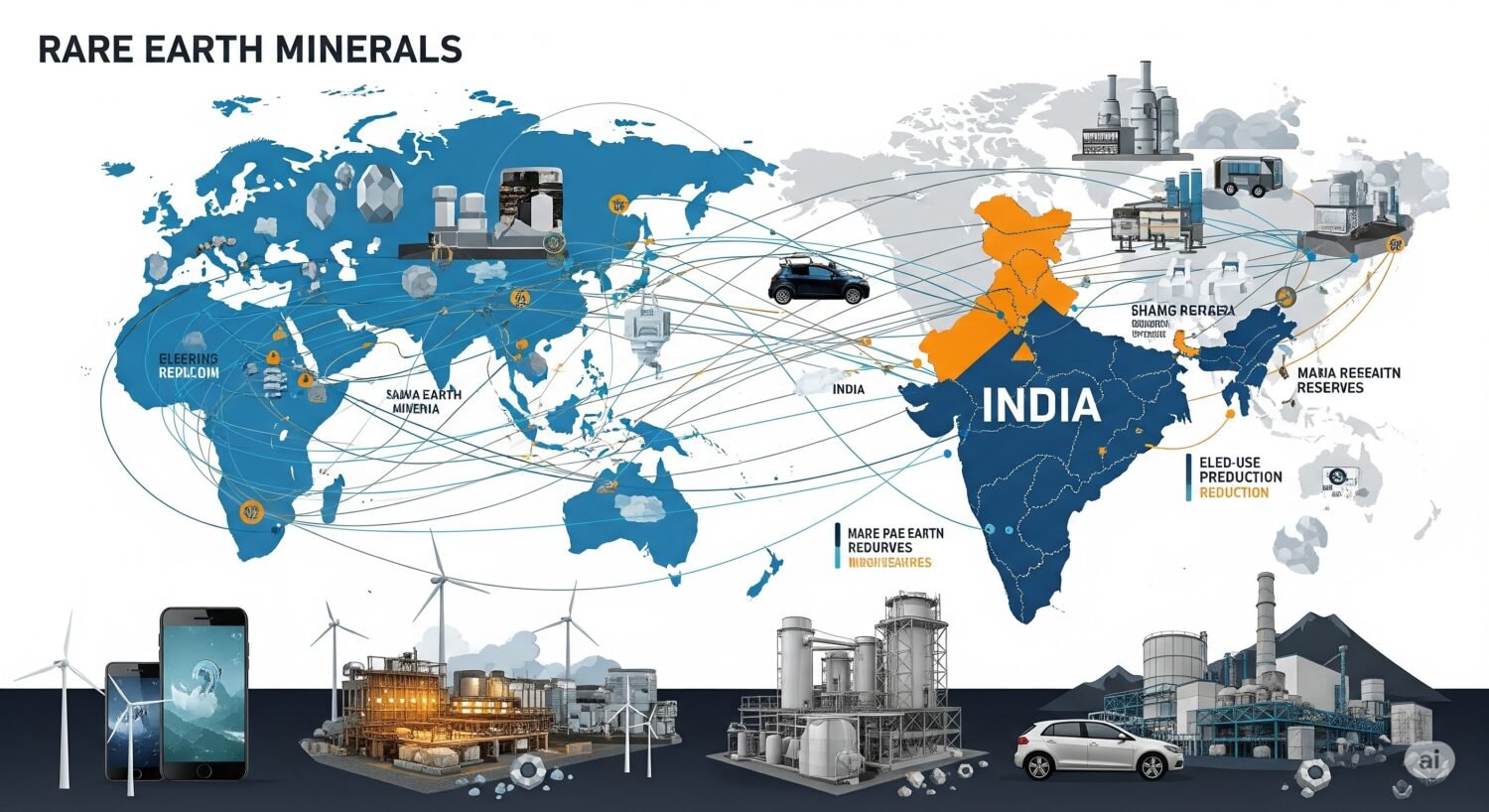Securing India’s Tech Future: Why Rare Earths Matter More Than Ever


In today’s rapidly evolving technological landscape, certain resources hold the key to a nation’s progress and security. Among these, rare earth minerals stand out as indispensable. From the smartphones in our pockets to the electric vehicles on our roads and the advanced defence systems protecting our borders, these critical minerals are the backbone of modern innovation. However, their supply chain has become a significant point of geopolitical discussion, particularly concerning China’s dominant position.
The Global Scramble for Critical Minerals
The world is witnessing an intense competition for critical minerals like lithium, nickel, and graphite, alongside the rare earths. These are not just industrial commodities; they are strategic assets that power the next generation of high-end technology. The nation that controls their supply holds a considerable advantage in the global economy and in strategic sectors. This reality underscores the urgency for countries like India to secure their own access and reduce over-reliance on any single source.
PM Modi’s Vision: Preventing Weaponisation
Prime Minister Narendra Modi has recently voiced a crucial concern on the global stage: the potential “weaponisation” of critical minerals. He emphasized that no country should use these vital resources for selfish gain or as a tool of coercion against others. This statement resonates deeply, especially given the opaque policies some nations adopt regarding their mineral reserves. India’s stance is clear: access to these minerals should be secure and reliable for all, fostering a level playing field for technological advancement and economic growth.
Why This Matters to India
For India, a nation on the cusp of a major technological leap, securing a robust and diversified supply chain for rare earths and critical minerals is paramount. Our ambitions in electric mobility, renewable energy, and advanced manufacturing depend heavily on these resources. Relying too heavily on a single source, especially one with a history of unpredictable policies, could stifle our growth and compromise our strategic autonomy.
- Boosting Domestic Capabilities: Investing in exploration, mining, and processing of rare earths within India is crucial. This not only creates jobs but also strengthens our self-reliance.
- International Collaborations: Forging partnerships with other nations that share similar concerns about supply chain security can help diversify sources and build resilient networks.
- Innovation in Recycling: Developing advanced recycling technologies for electronic waste can help recover valuable rare earth elements, reducing our dependence on fresh mining.
A Path Towards Self-Reliance and Global Stability
PM Modi’s call for responsible stewardship of critical minerals highlights a global imperative. For India, it’s a clarion call to action. By focusing on domestic capabilities, fostering international cooperation, and embracing sustainable practices like recycling, India can secure its technological future and contribute to a more stable and equitable global supply chain for these invaluable resources. This proactive approach is not just about economic growth; it’s about safeguarding our strategic interests and ensuring a brighter, technologically advanced future for all Indians.
Recent Posts
A Gang’s Chilling Warning to Bollywood after the Kapil Sharma Cafe Attack
A recent incident at actor-comedian Kapil Sharma’s cafe has sent a chilling message through the… Read More
Modi and Putin’s Crucial Talk: Strengthening Ties Amid Global Tensions
Narendra Modi and Russian President Vladimir Putin recently held an important conversation, reaffirming the strong… Read More
The Bull and Bear Tussle: How Trump’s Tariffs Are Shaking Up the Indian Stock Market
Indian stock markets are on edge after new US tariffs. Will the Nifty50 and Sensex… Read More
Hope Amidst the Uttarkashi Flash Floods: Families Await News
Anxious families in Uttarkashi wait for news after flash floods. Discover the ongoing rescue efforts… Read More
India’s Unwavering Pledge: Farmers’ Interests Paramount, Says PM Modi
The nation recently witnessed a strong and clear message from Prime Minister Narendra Modi regarding… Read More
Beyond Flavor: Unveiling the Healing Powers of Indian Spices
Indian cuisine is renowned worldwide for its vibrant flavors and aromatic spices. However, these culinary… Read More